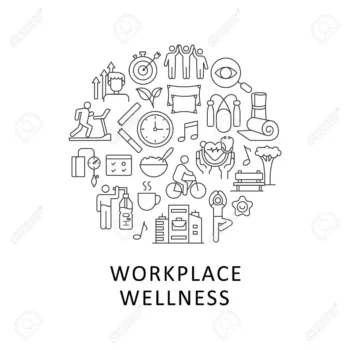Events of the last four years have changed the nature of work for many and the relationship that some workers have with their jobs. The Surgeon General’s Framework for Mental Health & Well-Being in the Workplace outlines the foundational role that workplaces should play in promoting the health and well-being of workers and communities. With more than 160 million … [Read more...] about Five essentials to support employee mental health and well-being
wellness
What happened to weekends?
By Lynne Curry If you’ve lost your weekends to work projects begging to be finished and annoying pop-up employer emails, you’re not alone. According to ActivTrak’s survey of 134,260 employees who worked for 900 separate organizations, employees work an average of 6.6 hours, almost a full work day, each weekend. If this fits you, consider these questions: Has your job taken … [Read more...] about What happened to weekends?
7 classic tips for work-life balance
The line between work life and personal life is more blurred than ever for today's office manager. But you need be able to turn off work and focus on family and other responsibilities, as well as recreation and taking care of your own well-being. Here are seven tips—classic but still valuable—for reclaiming your life beyond work. Set boundaries: It's important to set clear … [Read more...] about 7 classic tips for work-life balance
Worker well-being a priority, but wellness programs falter
Over the last year, workers around the world have been struggling with mental health issues—particularly burnout and isolation. As employers move into a post-COVID-19 world, a more holistic view of worker well-being is key to helping employees at all levels manage stress and remain engaged. A recent report from The Conference Board, Holistic Well-Being @Work, examines what … [Read more...] about Worker well-being a priority, but wellness programs falter
Helping your employees help Ukraine
By Lynne Curry My inbox flooded when I challenged readers “are you brave?” writing about the woman who crashed Russia’s main state news broadcast to protest the Ukraine invasion, and then challenged employers with “what’s occurring in the Ukraine creates widespread grief. Are there ways you can channel your employees’ anger and sense of powerlessness by offering them avenues … [Read more...] about Helping your employees help Ukraine
Carve out some calm amid the chaos
With the demands of your job as a manager in the stressed healthcare sector, worries about world upheaval, and your own personal challenges outside work, life is stressful. Executive leadership coach Hortense le Gentil says you need to reclaim some mental space to make room for your intuition. Here's her advice: Let your brain take a break! Breaks allow you to check in with … [Read more...] about Carve out some calm amid the chaos
Is it poor performance or a personal crisis?
By Paul Edwards Those in the healthcare industry are bound to be ahead of the curve in understanding that mental illness is not a character defect and can be a serious health condition that requires intervention. Despite having a good comprehension of the importance of good mental health hygiene, healthcare professionals tend to fare badly in terms of psychological … [Read more...] about Is it poor performance or a personal crisis?
Employees say job pressures take bigger mental toll than COVID-19 fears
Managers, take note: As the pandemic drags on, the mental health of your staffers may be deteriorating as new survey results would suggest. In a recent survey, 57 percent of workers surveyed say their mental health has degraded since the start of the pandemic. The driving factor behind this decline: their workload. In fact, work pressures are so great that half of respondents … [Read more...] about Employees say job pressures take bigger mental toll than COVID-19 fears
Why employee mental health is so critical today—and how managers can help
By Robert Half Continued stress has long been an impediment to a healthy workplace, especially when it leads to burnout—increased mental detachment from the job and reduced effectiveness. In a 2019 Robert Half survey of managers, a staggering 96% said their employees experience burnout to some extent. And in a related poll, 91% of workers themselves reported feeling at least … [Read more...] about Why employee mental health is so critical today—and how managers can help
How to prevent the spread of nurse burnout in your healthcare organization
When COVID-19 hit, healthcare teams were called upon to save the world. And they did. But what healthcare leaders didn’t realize was that the battle has just begun for healthcare heroes suffering a severe mental and emotional toll. As COVID-19 cases rise and fall and rise again, so do physician and nurse burnout. “Executive leaders are cutting back on their resources to … [Read more...] about How to prevent the spread of nurse burnout in your healthcare organization









